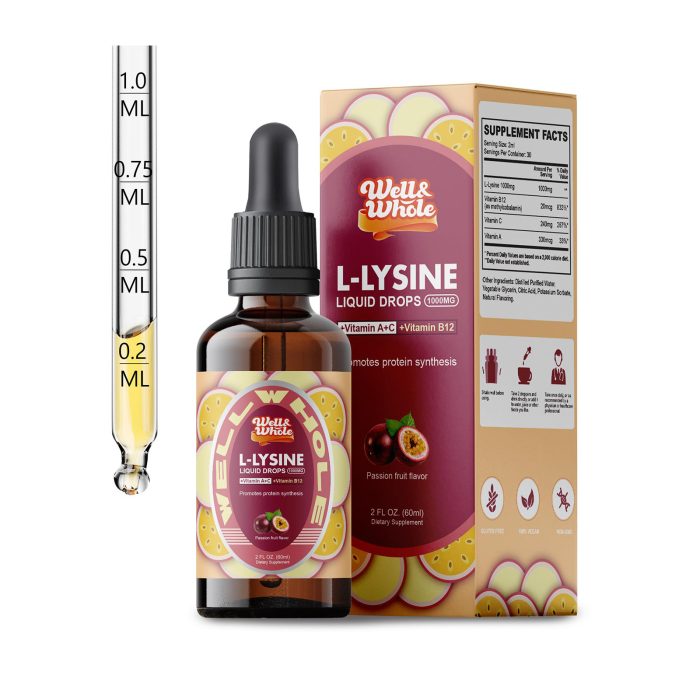Everything You Need to Know About Neutral Polar Amino Acids
Amino acids are the building blocks of proteins, and understanding their properties is essential for anyone interested in nutrition, health, or molecular biology. Neutral polar amino acids, in particular, play a pivotal role in these areas as they exhibit unique characteristics that significantly impact metabolic processes, protein structure, and overall bodily functions.
At Well&Whole, where we are committed to enhancing holistic health through high-quality supplements, understanding amino acids like these forms the cornerstone of our research into effective, science-backed formulations. Let’s dive into what makes neutral polar amino acids so indispensable and how they support your overall well-being.
The Basics of Neutral Polar Amino Acids
Neutral polar amino acids are those whose side chains (R-groups) are both uncharged and hydrophilic (water-attracting). Unlike acidic or basic amino acids, their side chains do not carry a net charge at physiological pH. However, their polarity allows them to form hydrogen bonds, making them crucial for protein folding, cellular communication, and enzyme catalysis. Examples of neutral polar amino acids include serine, threonine, asparagine, glutamine, cysteine, and tyrosine.

Each of these amino acids has distinct functionalities:
- Serine and threonine are key players in metabolic reactions, often acting as sites for phosphorylation in signaling pathways.
- Asparagine and glutamine are essential in cellular repair and synthesis processes.
- Cysteine, with its sulfur atom, is foundational for the formation of disulfide bonds that stabilize protein structures.
- Tyrosine contributes to producing neurotransmitters and hormones such as dopamine and adrenaline.
Understanding these roles highlights their essential contribution to both human health and nutritional science.
Where Do Neutral Polar Amino Acids Fit in Nutrition and Health?
1. Protein Folding and Stability
Neutral polar amino acids contribute to the secondary and tertiary structures of proteins. By forming hydrogen bonds, they help stabilize protein conformations, ensuring these biomolecules can perform their specific functions efficiently. For instance, disrupted protein folding caused by oxidative stress or nutrient deficiencies can lead to chronic illnesses such as Alzheimer’s disease or diabetes.
Did you know? A recent study published in The Journal of Molecular Biology revealed that approximately 40% of hydrogen bonds in human proteins are formed by neutral polar amino acids. This underscores their central role in molecular stability.
2. Cellular Repair and Immune Function
Amino acids like asparagine and glutamine support active tissue repair, making them indispensable after intense physical activity or injury. They also play a role in maintaining your immune system by fueling rapidly dividing cells such as T-cells and macrophages.
Products from Well&Whole often include these amino acids in carefully calibrated proportions to support recovery and immune resilience.
3. Enhanced Absorption of Nutrients
Glutamine, a neutral polar amino acid, is critical for gut health, as it serves as the primary energy source for intestinal cells. It strengthens the intestinal lining, reducing the risk of “leaky gut” syndrome. For individuals with digestive concerns, incorporating glutamine-rich supplements or foods can significantly improve nutrient absorption.
Commonly Asked Questions About Neutral Polar Amino Acids
Are neutral polar amino acids essential for the human body?
While some (e.g., serine and tyrosine) can be synthesized by the body, others require dietary ingestion. Moreover, in situations of stress or illness, the body’s demand for amino acids like glutamine may exceed its production. Therefore, supplementation can be beneficial.
How can I incorporate these amino acids into my diet or supplement routine?
Neutral polar amino acids are found in foods like eggs, fish, dairy products, nuts, and legumes. However, if you’re looking for a targeted approach, Well&Whole offers expertly formulated supplements enriched with essential amino acids to ensure optimal absorption and effectiveness.
What health benefits can supplementation provide?
Incorporating these amino acids may improve muscle recovery, stabilize blood sugar levels, enhance cognitive function, and strengthen the immune system. For instance, cysteine supplementation directly supports antioxidant production, like glutathione, which combats oxidative stress and aging-related damage.
Tailored Solutions From Well&Whole
At Well&Whole, we understand that wellness is personal. Ensuring you receive the right nutrients in a bioavailable form is why we prioritize scientifically backed formulations. Our supplements include amino acids sourced from high-quality ingredients, tailored to meet varying health needs. Whether you’re looking to optimize recovery, bolster immunity, or support cognitive clarity, we’ve got you covered.
What’s more, our commitment to transparency ensures every product is third-party tested, so you always know you’re getting the best.
Final Thoughts
Neutral polar amino acids may be small molecules, but their impact on your well-being is monumental. From forming robust proteins to ensuring efficient cellular communication, they are vital to maintaining a healthy body. Whether you’re an athlete focused on recovery or an individual striving for balanced health, incorporating the right nutrients is a step in the right direction.
Make sure your body has what it needs to thrive. With Well&Whole, you’re not just choosing supplements; you’re choosing a healthier, brighter tomorrow.
Share this article with a friend who could benefit from knowing more about the role of amino acids in nutrition and health! ✨









